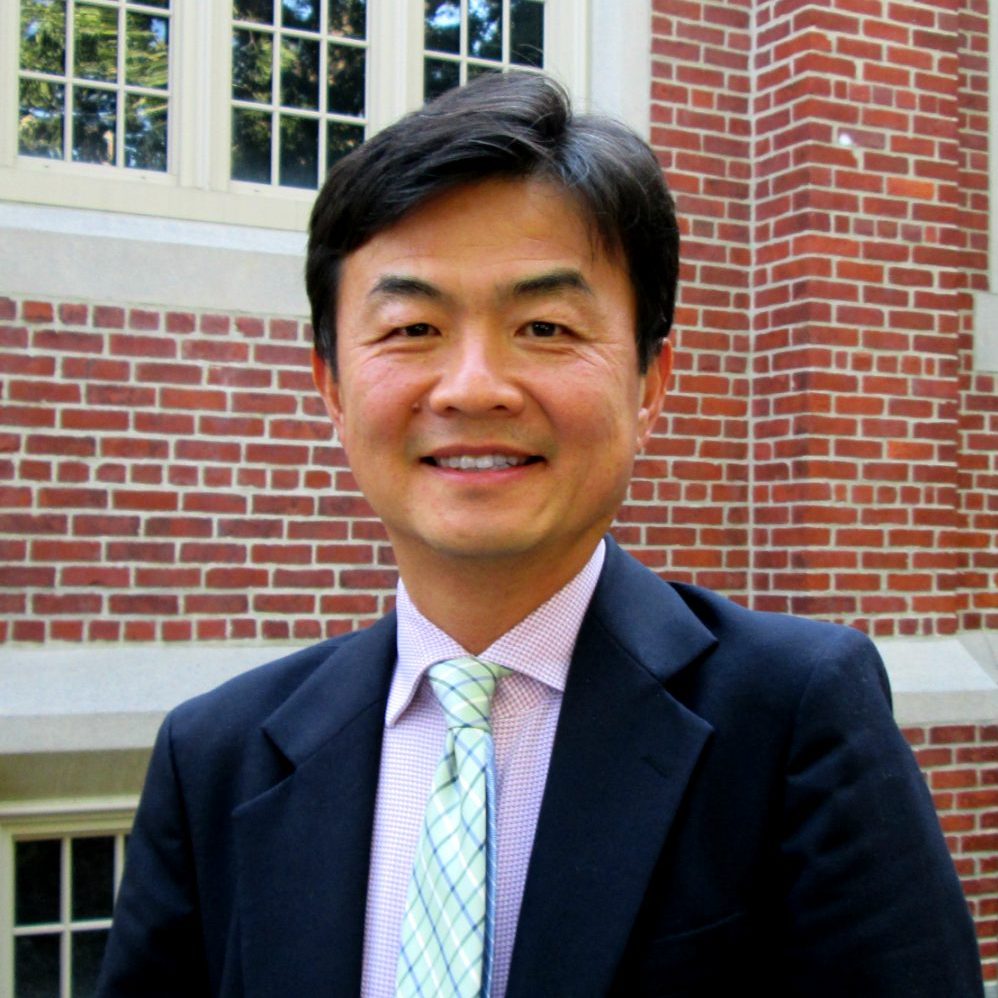- Organizational Chart
- Global Affairs Administration
- >> Communications & Marketing
- >> Program Assessments
- >> Advisors and Consultants
- Experiential Global Learning
- Center for International Students & Scholars
- >> UConn American English Language Institute
- Global Partnerships & Outreach
- Global Training & Development Institute
- The Gladstein Family Human Rights Institute
- >> Dodd Human Rights Impact
- International Studies Association
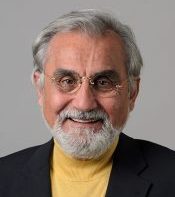
Hadi Bozorgmanesh, Ph.D.
Senior Advisor for Global Entrepreneurship
Professor of Practice, School of Engineering
Director, Enterprise Solution Center (ESC)
Email: hadi.bozorgmanesh@uconn.edu
Hadi Bozorgmanesh is Professor of Practice in the School of Engineering at UConn where he developed and teaches Tech Experiential Entrepreneurship for graduate students and post-doctoral researchers interested in converting research into viable businesses. Bozorgmanesh is academic advisor to the Innovation House and actively involved with introducing entrepreneurship to the First Year Learning Communities. Bozorgmanesh also serves as a mentor and advisor to student entrepreneurs, and helps them with funding opportunities through the Third Bridge Grant Program.
Prior to UConn, Bozorgmanesh was a senior executive with Science Application International Corporation (SAIC), where he held leadership positions in Europe and the U.S. He holds a Ph.D in Nuclear Science and Engineering, M.S. in Physics and Nuclear Science and Engineering from the University of Michigan and B.S. in Mechanical Engineering and Physics from UConn.
 Scott Brown, Ph.D.
Scott Brown, Ph.D.
Senior Advisor for Global Education
Emeritus Board of Trustees Distinguished Professor of Educational Psychology, Neag School of Education
Email: scott.brown@uconn.edu
A leader in learning and cognitive processing, among Brown’s most notable accomplishments includes his work as one of the creators of the web-based GlobalEd2 (GE2) simulation program, which since 1998 has led to significant improvements in writing abilities, critical and scientific thinking, leadership, and problem solving among the more than 13,000 middle-schoolers from 14 states who have taken part in this interdisciplinary social studies game.
 Zaid Eyadat, Ph.D.
Zaid Eyadat, Ph.D.
Senior Advisor for the MENA Human Rights Program
Director of the Center for Strategic Studies and Professor of Human Rights at the University of Jordan
Email: zaid.eyadat@uconn.edu
Zaid Eyadat is a political scientist and Professor of Human Rights at the University of Jordan, with over ten years of experience in researching the democratization of the Middle East within the framework of game theory. His expertise lies in Middle East politics, with his current research focusing on human rights, conflict management and resolution, the democratization and politics in the Middle East, and Islamic politics. Through his membership in both governmental and non-governmental organizations, as well as international institutions, he has extensively contributed to the analysis and advancement of Middle East politics within a comparative and international framework, working extensively on legislation, policies, and procedures with the Jordanian government and NGOs.
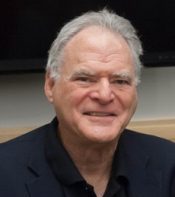 Jeffrey Fisher, Ph.D.
Jeffrey Fisher, Ph.D.
Senior Advisor for Global Health Programs
Emeritus Board of Trustees Distinguished Professor of Psychology
Email: Jeffrey.Fisher@uconn.edu
Jeffrey Fisher spent much of his 43-year career at the University of Connecticut creating and participating as a researcher in international, interdisciplinary research collaborations to improve the public health. He is a University of Connecticut Board of Trustees Distinguished Professor of Psychology Emeritus and the founding director of the University’s Institute for Collaboration on Health, Intervention and Policy (InChip). Fisher is an internationally recognized scientist in the field of health behavior change and has designed, implemented, rigorously evaluated and internationally disseminated effective health behavior change interventions that have prevented disease and saved lives. He has held over $25 million in grants from the National Institutes of Health as Principal Investigator, and has published widely on conceptualizing health behavior change and on behavioral interventions to change unhealthy behavior. Fisher brings his many years of expertise to the efforts UConn Global Affairs to support international collaborations to improve global health.
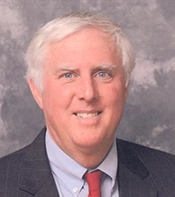 Arthur House, Ph.D.
Arthur House, Ph.D.
Senior Advisor for Global Geopolitics
Lecturer, Department of Political Science
Email: arthur.house@uconn.edu
Arthur House is an adjunct professor in the Political Science Department of the University of Connecticut. His background includes senior executive responsibilities in business, the U.S. Government and state government. Most recently, House served as Chief Cybersecurity Risk Officer for the State of Connecticut from October 2016 to October 2019 after four years as Chairman of Connecticut’s Public Utilities Regulatory Authority. House was Director of Communications and Congressional Relations for the Director of National Intelligence and Chief of the Communications Group for the National Geospatial-Intelligence Agency, a combat support agency of the U.S. Department of Defense. He holds a top secret security clearance. As a White House Fellow he served as Special Projects Officer on the staff of the National Security Council.
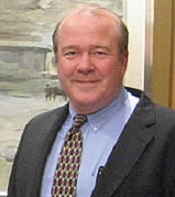 Roy Kamphausen
Roy Kamphausen
Senior Advisor for East Asia
Email: roy.kamphausen@uconn.edu
Roy Kamphausen is Senior Vice President for Research and Director of the Washington, D.C., office at The National Bureau of Asian Research (NBR), and concurrently serves as Senior Advisor for East Asia to the Vice President for Global Affairs Daniel Weiner. At NBR, he provides executive leadership to the Bureau's policy research agenda on security, politics, energy, economics, and trade. Kamphausen directs NBR’s engagement with the administration, U.S. Congress, and foreign embassies in Washington, D.C. and integrates the work of Admiral Jon Greenert, NBR’s Shali Chair in National Security Studies, with ongoing programs and new initiatives. As a specialist on a range of U.S.-Asia issues, Kamphausen leads and contributes substantively to NBR’s research initiatives. He is the author, contributing author, or co-editor of numerous publications, including chapters in NBR’s Strategic Asia series; the Carlisle People’s Liberation Army Conference series and its most recent volume, The Chinese People’s Liberation Army in 2025 (co-edited with David Lai, 2015); an NBR Special Report on innovation in India (2015); and the IP Commission’s Report on the Theft of American Intellectual Property (2013).
 Gregory Kivenzor, Ph.D, M.S., MBA
Gregory Kivenzor, Ph.D, M.S., MBA
Senior Advisor for Central and Eastern Europe
Email: gregory.kivenzor@uconn.edu
Dr. Gregory Kivenzor is a Professor in the Field at the School of Business and Senior Advisor to Vice President of Global Affairs focusing on Central and Eastern Europe. Over the years, he has gained extensive experience in academia and the corporate world. Throughout his career, he has followed three main directions that have led to his success: innovative thinking, strategic approach, and cross-cultural communications. Greg researched, developed, and marketed innovative high-tech products and services, resulting in 15 patented inventions, dozens of academic papers, and professional presentations. Transitioning to academia, he applied a strategic approach to teaching advanced courses in global marketing and innovation management.
Yuhang Rong, Ph.D.
Associate Vice President for Global Affairs, Emeritus
Email: yuhang.rong@uconn.edu
Yuhang Rong transitioned to the role of Assistant Vice Provost for Global Affairs on July 1, 2014, after eight years of service as Assistant Dean for the Neag School of Education at the University of Connecticut. Rong was then appointed as Assistant Vice President in February 2016, and subsequently Associate Vice President in July 2017. He also holds the position of Associate Professor in Residence in Educational Leadership at the University of Connecticut. Rong earned his B.A. in English from East China Normal University (华东师范大学), his M.A. in Education Administration from West Virginia University, and his Ph.D. in Professional Higher Education Administration from the University of Connecticut, with partial completion from the University of Wisconsin-Madison.
